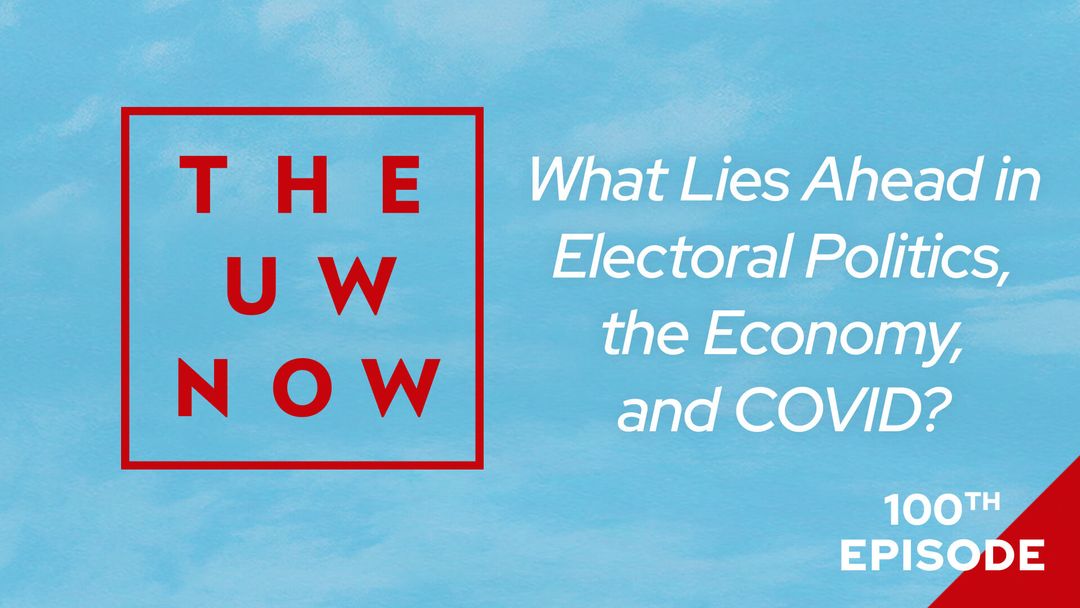Nasia Safdar MS’02, PhD’09, a physician and expert in infectious diseases, was naturally the first guest to appear on The UW Now Livestream following the outbreak of the COVID-19 pandemic. As the Dr. Dennis G. Maki Endowed Faculty Fellow in the Division of Infectious Disease in the Department of Medicine and medical director of infection control at UW Hospital and Clinics, her expertise helped health care facilities limit the spread of COVID during the height of the pandemic, minimizing hospital-acquired cases for patients and frontline workers.
Since Safdar’s first time on the livestream — and her many subsequent appearances — COVID has waned substantially. But Safdar’s work hasn’t slowed down. In addition to her roles as an educator and medical director, she is also the associate dean for clinical trials at the UW School of Medicine and Public Health and director of the UW Institute for Clinical and Translational Research. As a researcher, professor, and health care administrator, Safdar is working to develop better interventions to protect individuals and communities from both common and black-swan viruses.
On August 13, Safdar will join The UW Now Livestream’s 100th episode for the seventh time to re-examine the pandemic that started our remote program and share what we’ve learned since.
My Chief Area of Research Is:
My main area of research is hospital-acquired infections and emerging infections. For the first couple of years [of the pandemic], we were very focused on learning as much as we could about COVID, particularly its intersection with the health system and all the issues that came about with hospitalizations and deaths and vaccinations. Since then, we’ve gone back to do what we were doing before, which is research on bacterial infections that affect the health system and the public. But I think it’s really wherever the need is, that’s where our interest would most be.
On The UW Now Livestream, I Plan to Discuss:
I think it will be a little bit of evolution of how it all started with COVID back in 2020 and then where we are today and what are some of the advances that have led us to this place and what are some of the challenges that remain as we look to the future.
One Thing I’d Like Viewers to Remember Is:
I think sometimes when we are in the midst of a crisis, like we were with COVID, it’s really important to debrief when there is a chance to do so. [It’s also important] for people to really think about how far we have come as a society and as a species in dealing with something that we had no idea about when it first began.
To Get Smart Fast, Read:
The U.S. Centers for Disease Control and Prevention website and the World Health Organization website are good because they have material that is geared toward a range of people; it’s for both the lay public as well as health care professionals. There is a really great recent review on long COVID, which is of interest to many people who have suffered from COVID and now are experiencing the symptoms of long COVID. I found that to be very helpful.
Since My First Appearance on the Livestream:
I think the big thing that’s changed is that, as a society, we have learned to have a somewhat uneasy coexistence with COVID. It doesn’t quite generate the same level of anxiety and concern as it did when it first began. That’s not to say that there aren’t a lot other still unanswered questions, but at least we have vaccines that are effective. They’re not as long-lasting as one would like because of the way the virus continues to evolve. But that in itself was a significant advance, and it’s made a big difference with how people recover from COVID.
